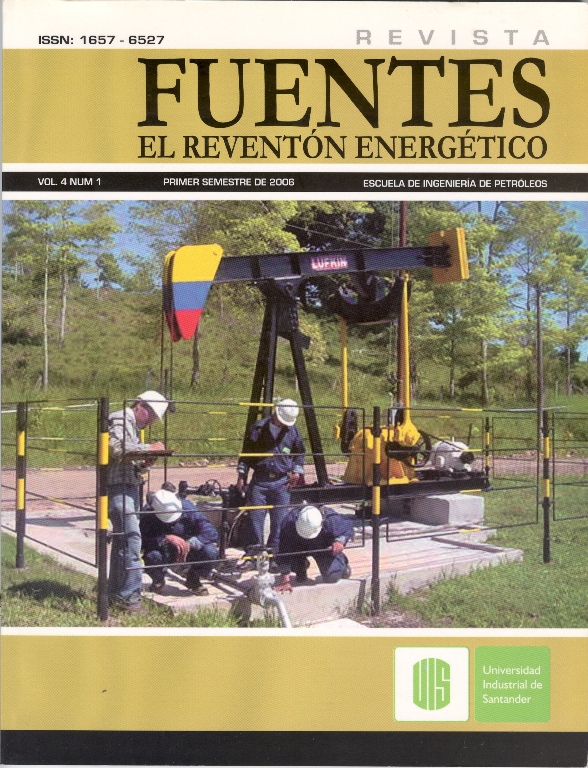ESTUDIO DE SIMULACIÓN PARA LA EVALUACIÓN DEL COMPORTAMIENTO DEL SISTEMA ROCA-FLUIDO DE UN YACIMIENTO DE CRUDO PESADO AL SER SOMETIDO A CALENTAMIENTO ELÉCTRICO RESISTIVO
Publicado 2006-06-02
Como Citar
Resumo
RESUMEN
El calentamiento eléctrico resistivo es una técnica de estimulación térmica en la cual corriente eléctrica se hace pasar a través del medio poroso. A medida que la corriente fluye en el yacimiento la energía eléctrica asociada a ésta es convertida en calor, produciéndose así un aumento en la temperatura promedio de la zona adyacente al pozo productor, lo cual genera una disminución en la viscosidad del crudo y por tanto un aumento en la producción.
Este trabajo fue realizado con el objetivo de analizar el comportamiento de un yacimiento hipotético de crudo pesado al ser sometido a un proceso de calentamiento eléctrico resistivo, además de estudiar el efecto que tienen parámetros de diseño tales como la ubicación del dispositivo de retorno, la longitud del electrodo y el voltaje aplicado sobre el comportamiento del perfil de temperatura en el yacimiento.
El análisis se realizó a partir de un estudio de simulación en el cual se empleó el módulo para calentamiento eléctrico del simulador STARS (Steam, Thermal and Advanced Processes Reser voir Simulator) de CMG (Computer Modelling Group).
Palabras claves: Calentamiento eléctrico resistivo, simulación de yacimientos, crudo pesado, estimulación térmica.
ABSTRACT
The resistive electrical heating is a thermal stimulation technique in which an electrical current is made to pass through a porous media. Whüe the current fiows in the reservoir, the electrical energy associated with this, is converted into heat, being produced an increase in the average temperature of the adjacent zone to the productor well, generates a decrease in the viscosity of the crude and thus an increase in the production.
This work was realized to examine the behavior of a hypothetic reservoir of heavy crude which is being to exposed a process of resistive electric heating, furthermore to study the effect of design parameter as length of return the electrode and applied voltage have under temperature profile reservoir behavior and ubication.
The analysis was done from a study of simulation in which the module for electric heating of the simulator STARS (Steam, Thermal and Advanced Processes Reservoir Simulator) of CMG (Computer Modelling Group) was used.
Keywords: resistive electric heating, reservoir simulation, heavy oil, thermal stimulation.
